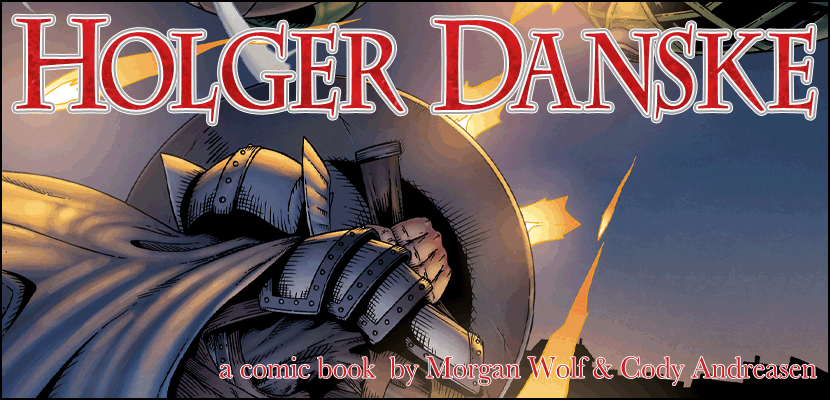Is it just me, or did Ultron's motivation for destroying the earth strike anyone else as just a bit tinny? A bit silly? A bit… I don't know… like Marvel is running out of ideas? Because it seems to me that when the whole WORLD is always what's at stake, it sort of feels like nothing is really at stake. Not to quote murderous dictators too often or anything, but I can't help but draw a parallel to Stalin's, "
A single death is a tragedy, a million is a statistic" line. As in, the stakes are so big that you know there is no chance that the heroes won't manage to pull victory from the strong metal jaw of James Spader's A.I, who just so happens to know how to make a homemade meteor to obliterate all life on good ol' Terra Firma. I found myself kind of indifferent to the plight of my dear terrestrial orb. Six billion deaths is one honey of a ho hum statistic. So, one of the Avengers will probably have to take one for the team, so to speak, but we can be reassured by the fact that comics--like soap operas-- are in the no-narrative-consequence-is-ever-final business.
Besides, if we all go the way of the dinosaurs, what would happen to the Marvel movie franchise? The much vaunted MCU would be a smoking crater. So we know that nothing is going to happen. And, when you know nothing is going to happen, it makes for a boring movie. No matter how many CGI evil robots fly at our heroes, we know that somehow they will find a universal kill switch or possibly unknowingly cause an individual to evolve who will inexplicably manage to save, oh, everything.
"Gee, whatever shall we do? Ultron has escaped over the internet. He can go anywhere. Do anything. We'll never stop him now!"
"Don't worry. We've got a red Paul Bettany cookin'. That should do it."
Everything about Ultron is a Macguffin. He is only the way that he is because the plot needs him to be, not because there is anything true about his motivation. Why? Because he's about as threatening as a toaster. Sure, the odd one can burn your house down, but no one wonders about a malfunctioning toaster's vendetta against the human race.
Also, can we just pause here a moment to reflect on the fact that Joss Whedon wants those of us who regularly have to update the software on all our electronic devices to believe that computers are going to spontaneously get smarter rather than fubar-ed. This artificial intelligence bogeyman is a joke. Hmm, how shall we defeat this murderous robot? Oh, I don't know, let's just wait until he needs to update his operating system and then not do it. Or, even if we do the update, he won't work well enough to rip off the final sequence from
Superman Returns, so I think we're good.
And that is another problem with Avengers: Age of Unfulfilling Movie Experiences, it seems like we've seen it all before. When the Black Widow races through Seoul on a motorbike, I feel like I watched Rachel Weisz and Hawkeye in that same sequence in
The Bourne Legacy. The untrustworthy robots converging remind me of
iRobot. Pop culture is cannibalizing itself.
My other frustration is that I'm beginning to wonder if Joss Whedon could write a believable woman to save his life. (Or the planet's life, as the case may be.) I appreciate the fact that he wants to demonstrate that women are strong and necessary and all that good stuff. Kudos, Mr. Whedon. I appreciate your support. However, a strong woman doesn't look or act like a strong man. Her strength is not measured in the how closely she aligns to the men. Sure, we all love the idea of some thug underestimating a girl and then being surprised when she takes him to pieces all
Crouching Tiger, Hidden Dragon style, it's very satisfying, but that really isn't the inherent strength of femininity. Those scenes are satisfying because they are out of the ordinary. No one is that amazed when a strong guy fights off evil doer. Glad, sure. Amazed and satisfied, less so.
If your strong women only ever act like strong men do, then really, aren't you sending the message that femininity has no inherent strength? The character of the Black Widow was far more compelling in
The Winter Soldier. Her brains made her an asset to Steve, not her braun-y motorcycle moves. She anticipated the attack through the car roof and threw herself in harms way to protect her friend. She taught the guy garbed in the flag to blend in--to slip through the tightening net of danger--rather than fight at an inopportune time. She was more than useful. She was necessary and she had an interesting personality. Not so much, this time around. She picks up Cap's shield at one point. And she talks about the sun getting real low while slow motion high-fiving the rage monster. That's something, I guess. Maybe it would have been more compelling if there had been even the slightest whiff of chemistry between the two. Are we seriously supposed to buy this love story with the Hulk? I give it a single movie.
Also, I'm pretty sure that a strong woman would have moved past the fact that she didn't have a period by now. Disappointed when she lay awake at night, sure, I'll by that. But discombobulated by the memory of something she already knew about--a choice she made--to the extent that she has to hang out in someone else's bathrobe and plan to run away while the whole planet hangs in the balance?
A strong woman wouldn't have been taken out of play so easily.

